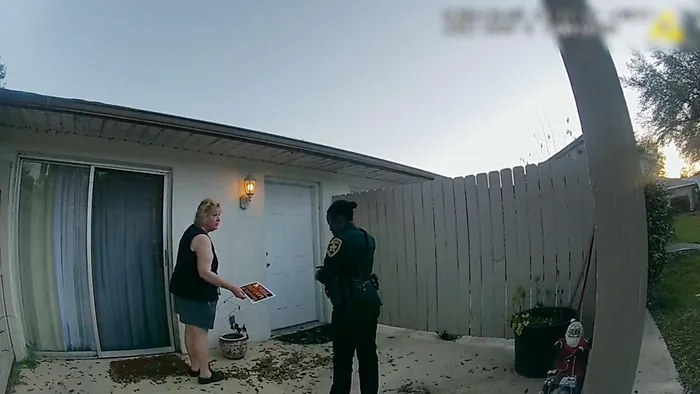'The Perfect Neighbor' exposes the chilling reality of the danger that lurks next door

Susan Lorincz in a scene from 'The Perfect Neighbor'.
Image: Netflix
True crime has never been my guilty pleasure, but somehow 'The Perfect Neighbor' grabbed my attention. There’s something about documentaries that shifts your perspective, that lets you peek into realities far removed from your own.
And this one delivers a harsh, uncomfortable reality: what happens when the so-called sweet old lady from next door turns out to be your murderer.
Set in Florida, the documentary tells the story of a long-simmering dispute between neighbours that spirals out of control over children playing in the street.
What makes it so haunting is the perspective: it is captured through the slightly fisheye, smudgy lens of American law enforcement bodycams.
There are no interviews, no voiceovers, barely any context. The camera simply shows you what happened, letting the tension and danger unfold in real time.
At first, the footage feels slow, almost mundane. You might find yourself thinking, “Get to the point.” But those small moments, glimpses of children running across lawns, families chatting, a neighbour shouting in frustration, gradually stitch together a terrifying narrative.
In America, many homes have no fences separating properties, creating a kind of open-plan neighbourhood where everyone can see everyone else’s yard. Children in this Florida community played freely in gardens and in a vacant field nearby, a space everyone knew kids would use.
This is where Susan Lorincz comes in. Over the course of 16 months, her irritation escalates from shouting at children to repeatedly calling the police, claiming she is “like, the perfect neighbour”.
Except she clearly isn’t.
The documentary’s most chilling scenes are harrowing and unfiltered: the fatal shooting of Ajike "A.J." Shantrell Owens, a devoted 35-year-old mother of four, while her children watched in terror.
The police interviews afterwards reveal a stark disconnect: Lorincz insists the children were causing trouble, while parents and witnesses recount her as the aggressor, swearing at the children, hurling racial epithets, and even brandishing a firearm.
Watching these bodycam encounters, a pattern emerges. Lorincz’s anger is neither situational nor reasonable. It becomes unnerving, almost apocalyptic, as viewers begin to understand that her behaviour is a ticking time bomb.
The documentary raises uncomfortable but necessary conversations about race, gun violence, and mental health. It shows how unchecked aggression can intersect with racial bias, and how firearms amplify everyday disputes into tragedy.
It also highlights the danger of dismissing warning signs in someone’s behaviour, especially when their anger becomes persistent, targeted and irrational.
And while the documentary leaves us in silence, no dramatic narration, no soundtrack to cue our emotions, the imagery is more than enough to make us confront the terrifying reality: monsters don’t always lurk in the shadows.
Sometimes, they’re right next door, armed, agitated, and all too human.
"The Perfect Neighbor" is now streaming on Netflix.
*** solid and enjoyable, though not groundbreaking.
Related Topics: